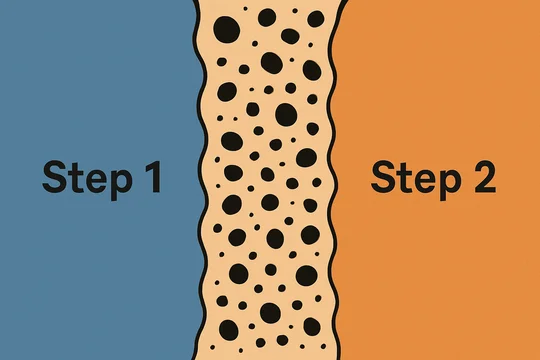Section 101 Motions are common as dirt, and as likely to be trod under the judicial foot (although the last time we checked they had a decent win rate in Delaware).
You lose at least as often as you win, and even if you win there's a fair chance the patentee will get a chance to amend to add in new facts relevant to the analysis -- particularly as to step two's conventionality/inventiveness inquiry.
This weeks decision from Judge Williams in Dish Techs. LLC v. FuboTV Media Inc., C.A. No. 23-986 (D. Del. May 21, 2024), shows us an intriguing third way.

The complaint listed just a bare handful of claims and the Defendant, Fubo, moved to dismiss under 101. The parties fully briefed the motion, and there was even an oral argument before Judge Williams. Judge Williams is historically a bit more likely than most to grant a 101 motion, so perhaps the plaintiff was feeling the heat after that hearing.
So, rather than wait to see how it all panned out, the plaintiff preemptively moved to amend the complaint both to specify more asserted claims, and to add in some allegations about how inventive and unconventional it all was. Fubo called foul (#sportspun) arguing that the proper time to move to amend was before the parties and the Court went to all this trouble, especially when plaintiffs had all the relevant information beforehand and had previously litigated these patents.
Judge Williams, although noting that the request was late, granted the motion to amend:
[T]he Court finds that Dish delayed in seeking leave to amend to assert new allegations for the subset of allegations that are based on facts that Dish knew, or should have known, as of the filing date of the original complaint.
The Court also finds, however, that Dish's delay in seeking leave to amend its complaint to include those allegations was not "undue." When the Court dismisses without prejudice a party's complaint for pleading deficiencies, that party can attempt to re-plead by adding additional factual allegations. Because "delay alone is generally an insufficient reason to deny leave to amend," that party has some leeway in attempting to re-plead by asserting facts that they knew, or should have known, as of the filing date of the initial complaint.
Id. at 5-6 (internal citations omitted)
The court then addressed futility under the usual Rule 15 standard and allowed the amended pleading. More interestingly, the Court addressed the obvious question of what is to become of the 101 motion—and held that it could not be re-raised until summary judgment:
The Court denies-as-moot FuboTV's motion to dismiss without prejudice to renew at summary judgment the § 101 issues, to the extent any remain and are appropriate for disposition at that time.
Id. at 9.The Court made this holding even more clear in a footnote:
Given the factual disputes which must be taken as true for purposes of a motion to dismiss and the disputes about the representativeness of the claims, Dish's First Amended Complaint should not be the subject of future motions to dismiss on § 101 grounds.
Id.
See? It's a weird posture. Consider the counterfactual scenario where Fubo prevailed on its 101 motion and the plaintiff was granted leave to amend. In that case, there's little doubt that the defendant would have moved to dismiss again, and there would have been no procedural bar to stop them. Now, because of the proactive move, plaintiff has paved itself a road all the way to summary judgment.
Honestly though, it makes sense on the particular facts of this case. The futility analysis is essentially identical to the motion to dismiss analysis, the main difference being that the plaintiff gets the better briefing schedule (opening and reply, as opposed to just an opposition). When, as here, the parties have already briefed, and the Court begun to consider, the underlying 101 issues, there's probably little to be gained from the exercise of a further round of briefing.
Still, it's a fun trick, and it's not too hard to imagine situations where it might be advantageous. Keep it in your back pocket for now.
If you enjoyed this post, consider subscribing to receive free e-mail updates about new posts.



